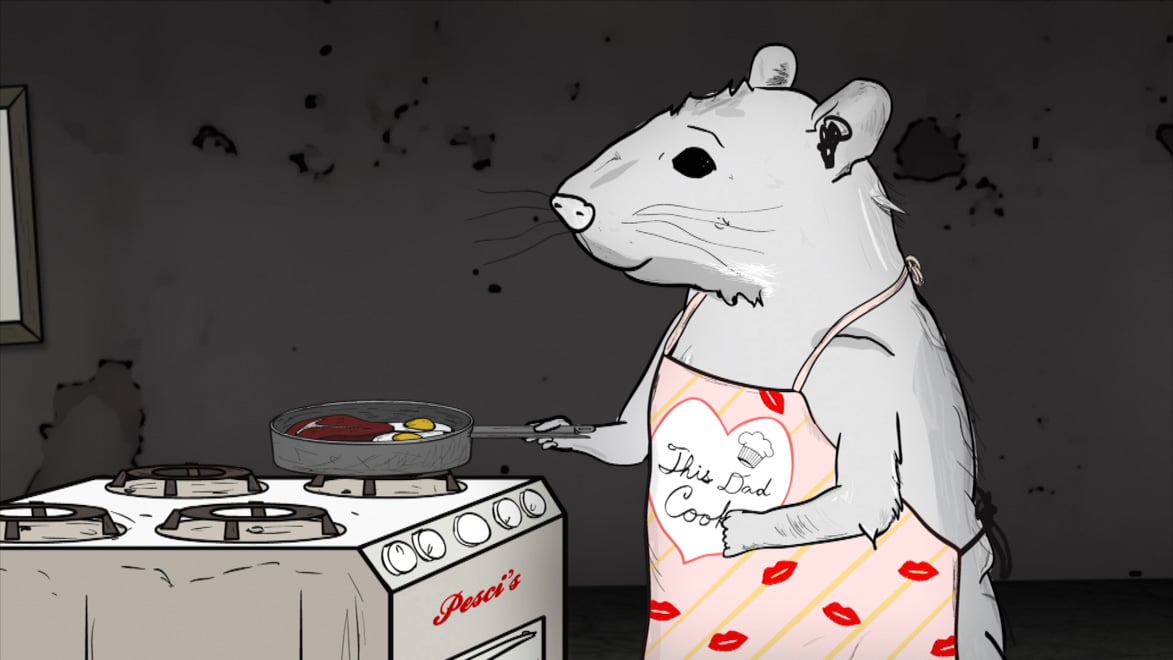Often, a show’s tagline is all that’s needed to determine its fate — from a one-sentence description, it’s simple to name a show that’s doomed to failure. On paper, HBO’s “Animals” is a safe bet for a fiery demise. Nowhere in the pitch “long-form sketch comedy featuring animated critters” is there the glimmer of promise; yet, from this dull ore, “Animals” extracts gold, excelling as both a comedy and an oftentimes disquieting analysis of modern life.
Part of the appeal of “Animals” is its entirely bizarre conceit. Each episode focuses on a different pair of nonhuman New Yorkers that happen to be named Phil and Mike as they go about a day in their lives. The stories range broadly in complexity, from single-sentence arcs about two rats attending a party to elaborate plotlines following two pigeons intertwined by the complexities of chauvinism and trans-identification. Stories and characters are also confined to their 30-minute timeslots, so each new episode is a surprise, providing just enough unpredictability to allow “Animals” to overcome the doldrums of expected unexpectedness that many similarly high-concept shows face.
Regardless of the content of the episode, the quality is always consistently impressive. Simpler storylines become vehicles for shock jokes, clever banter and impressively developed character interactions, especially given the constraints. When the premise begins to wear thin, a guest appearance or out-of-the-blue twist arrives to restart the pulse and take the episode in an entirely new direction.
The truly exceptional episodes, however, are the more intricate ones. Ironically enough, “Animals” tackles issues of the human condition better than most “serious” shows. Surrounded by more absurd episodes, padded with off-color jokes and softened by the ridiculousness of the premise, the show’s explorations of existence and meaning are often softened to prevent regressing into melodrama. In a sea of phallic humor and insane plot twists, these moments of raw pathos land with unexpected and almost unprecedented weight.
Among the show’s strengths are the vignettes interwoven throughout each episode. In cutaways from the main plotline, brief glimpses into the lives of other animals are shown. The new characters are often unnamed, and their actions have no impact on the main arc whatsoever. We are given no context, no history, and yet in a few moments they are eerily familiar. A fish couple argues, becoming one of the far too many bitter, unhappy couples. A nervous moth tries hallucinogens for the first time, reminding us of our own experiences feigning maturity, and his eventual overdose reminds us of the dangers such behaviors court. Despite lasting only a few seconds, these moments are often the most effective and honest of the show. No prejudices, no predictions, just a condensed and brutal examination of an everyday moment, as impactful or forgettable as one cares to make it.
There’s weight behind it all, and yet the show never feels too heavy. “Animals” never claim to know the answers, but interspersed among its sight gags and crude jokes are reminders of the bigger questions. More importantly, these questions are asked unforced and unpretentiously, an undercurrent to the comedic antics on the surface. Absurd humor is no novelty, and moralizing shows are almost omnipresent, but an effective and entertaining synthesis of both is damn good television.
“Animals” premieres tonight on HBO at 11:30 p.m. PT/ET and is currently available on HBO Now and HBO Go.
Contact Ryan Holmdahl ryanlh ‘at’ stanford.edu.
